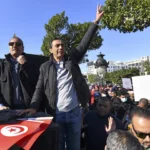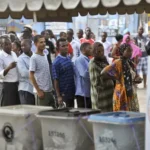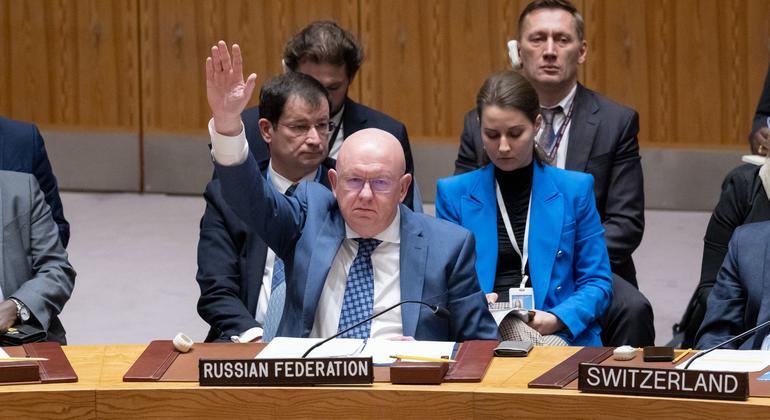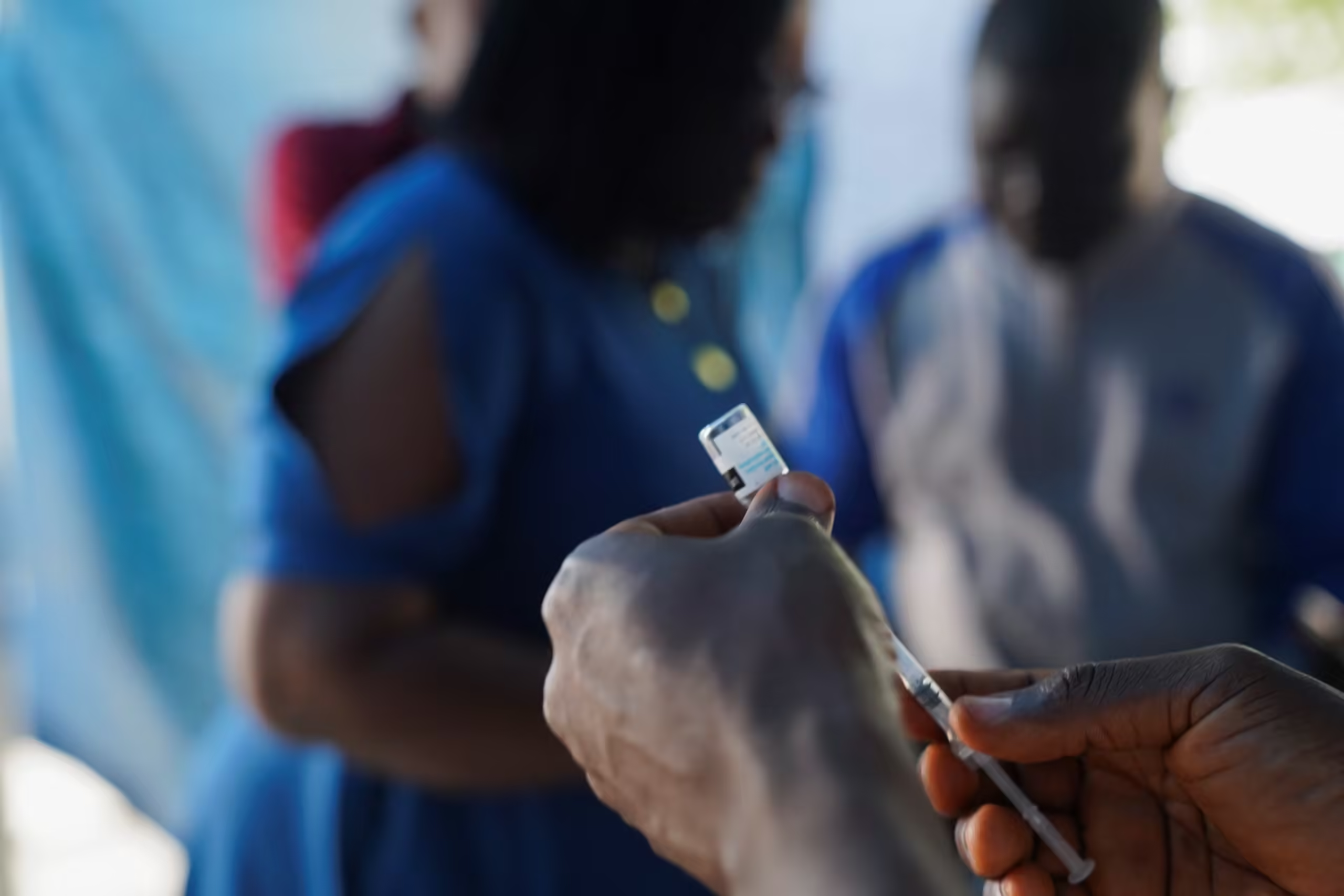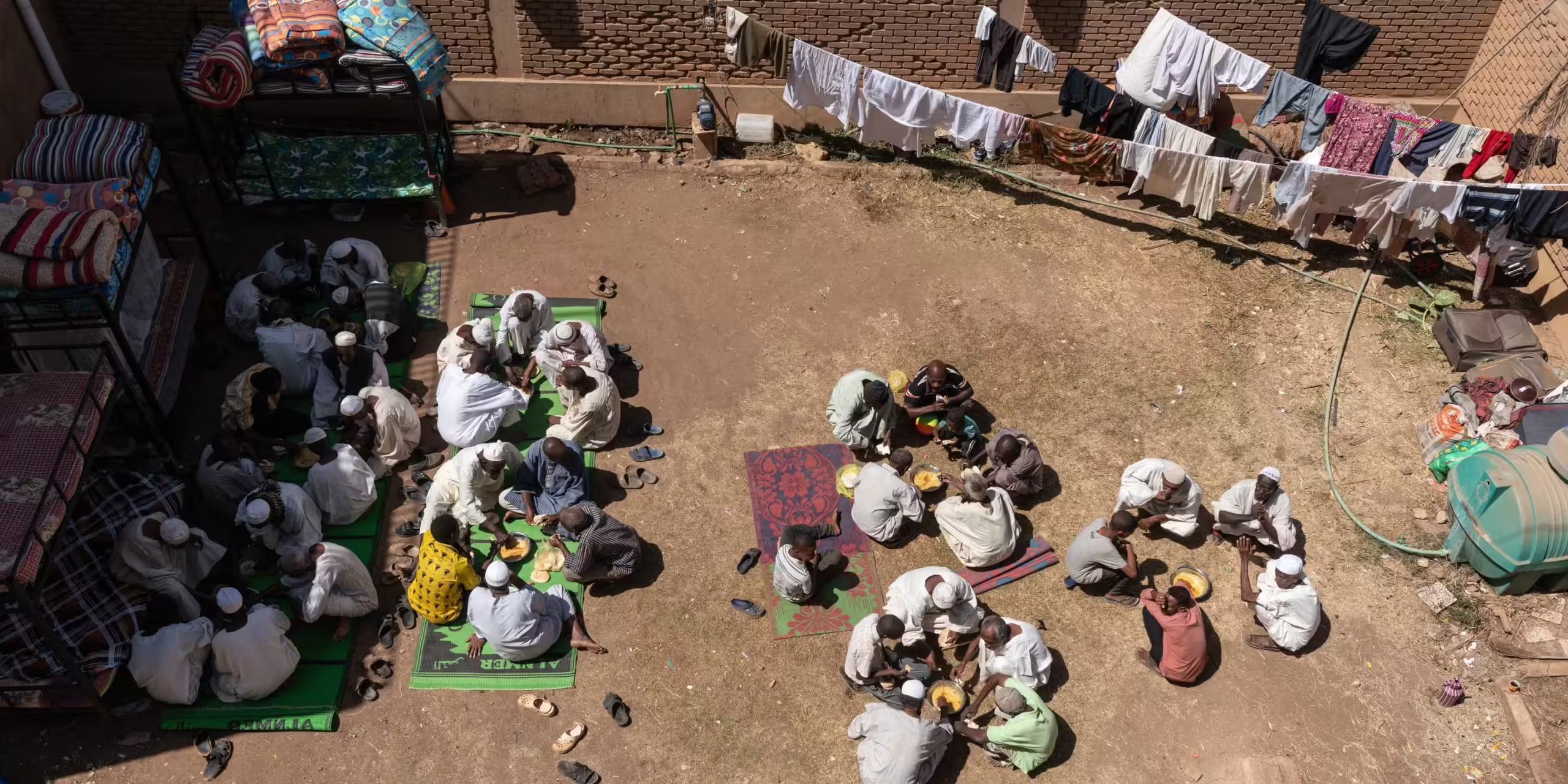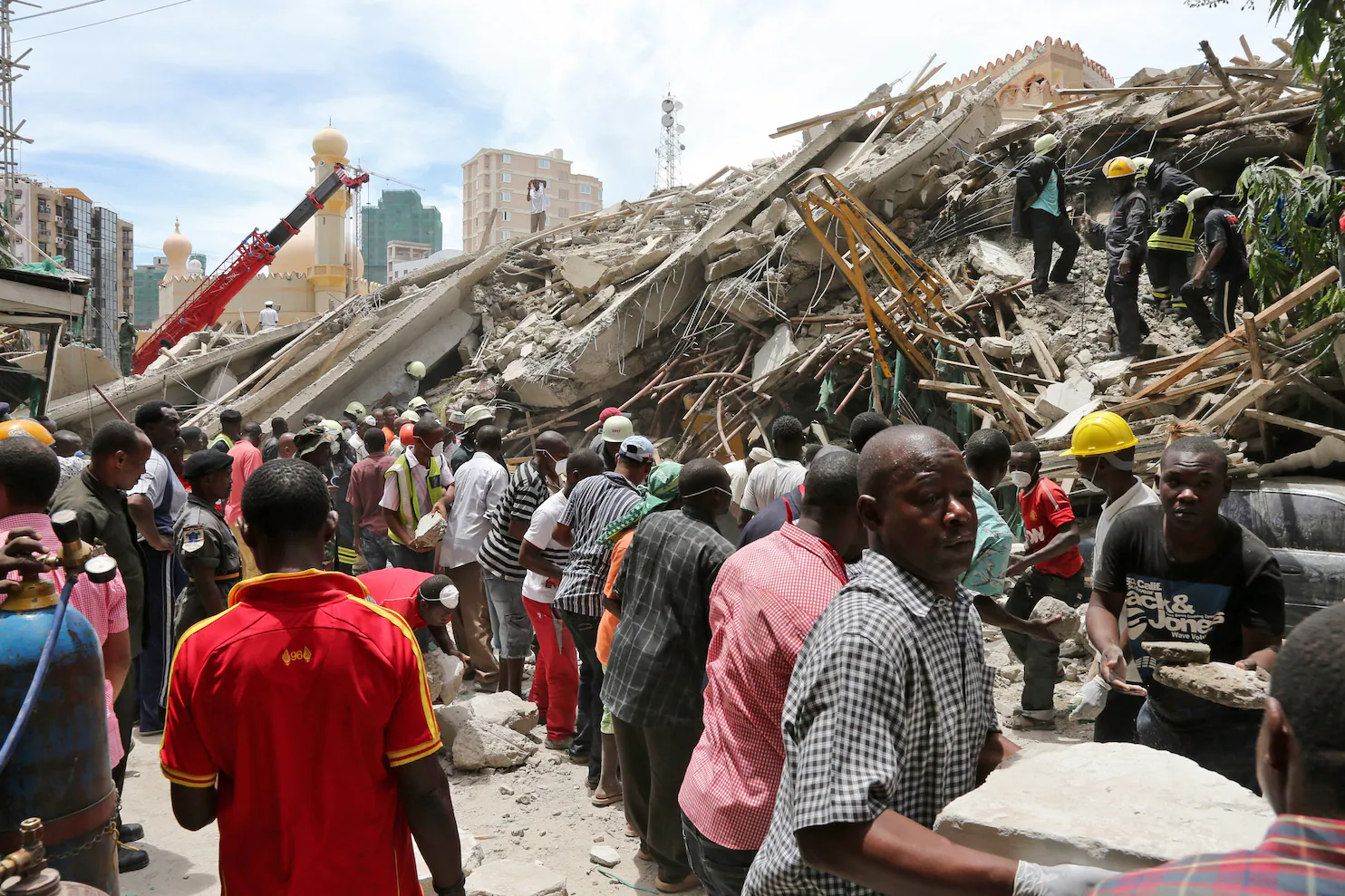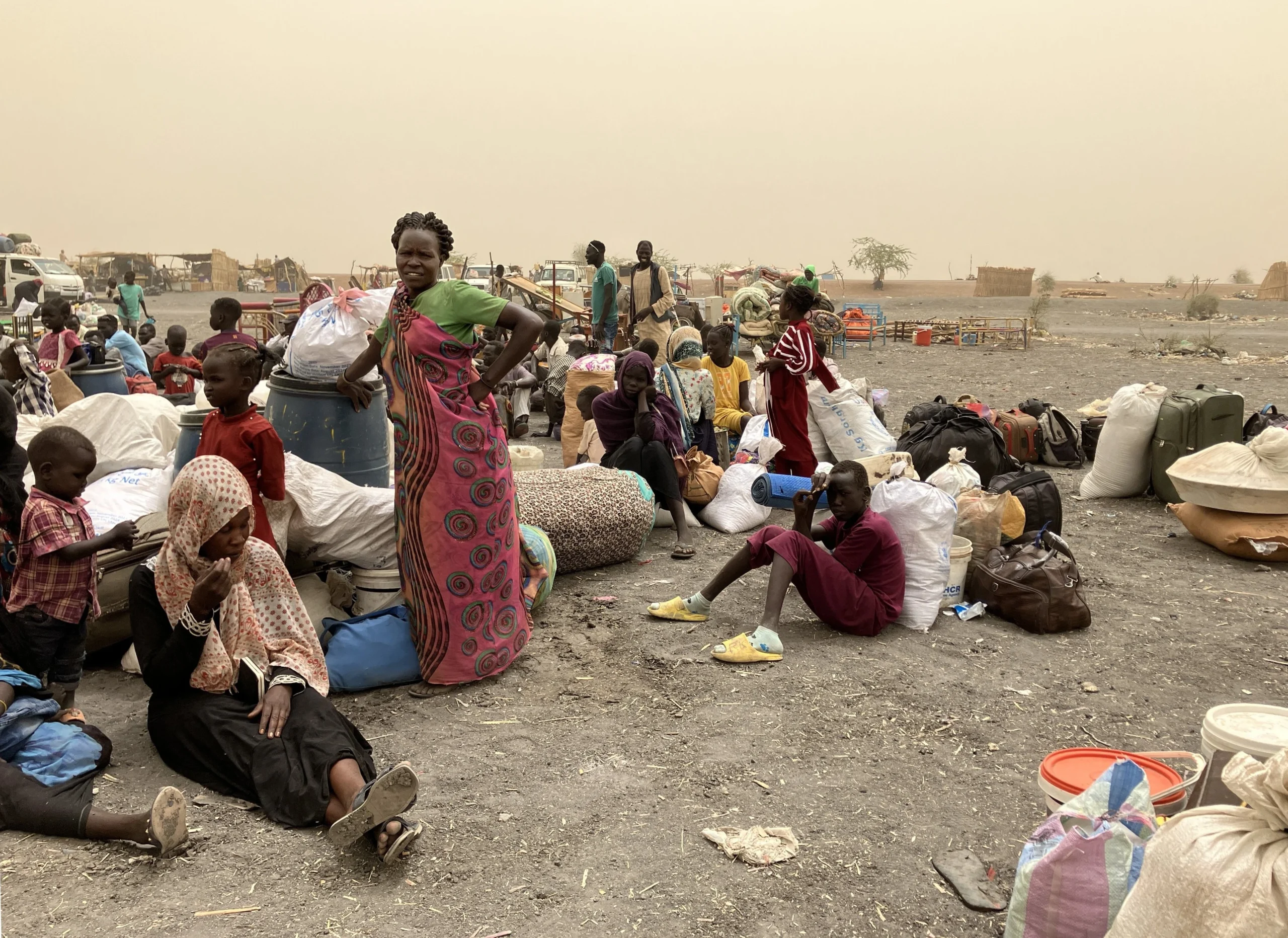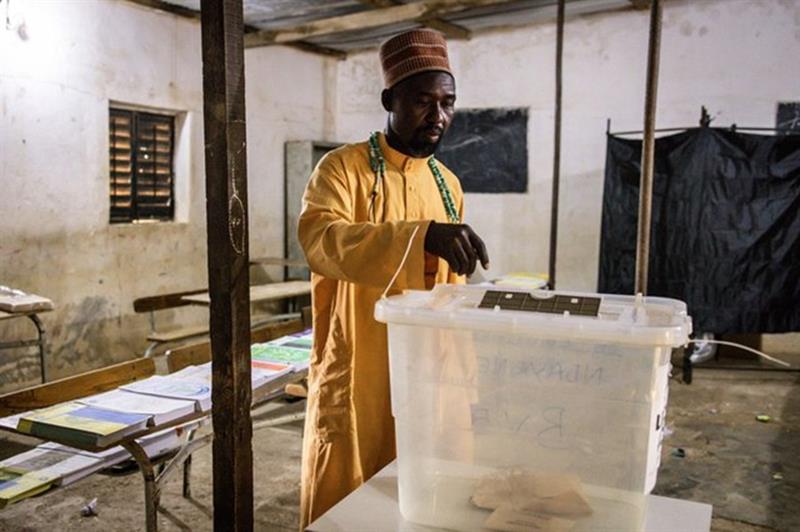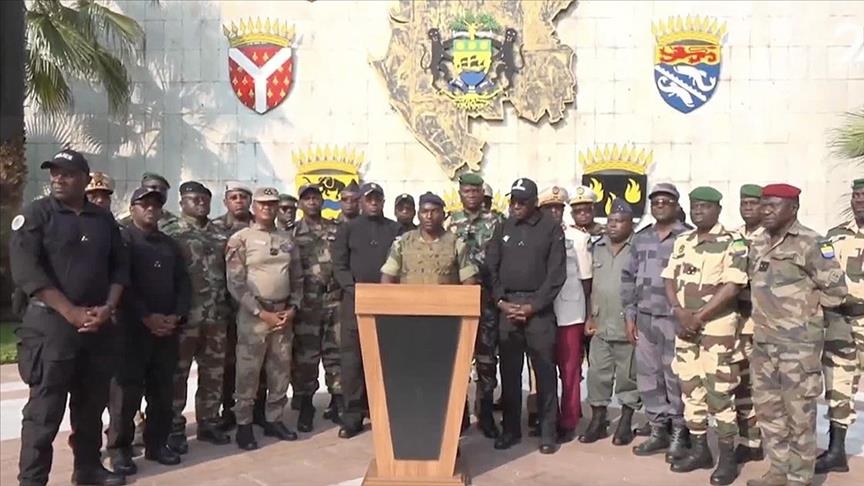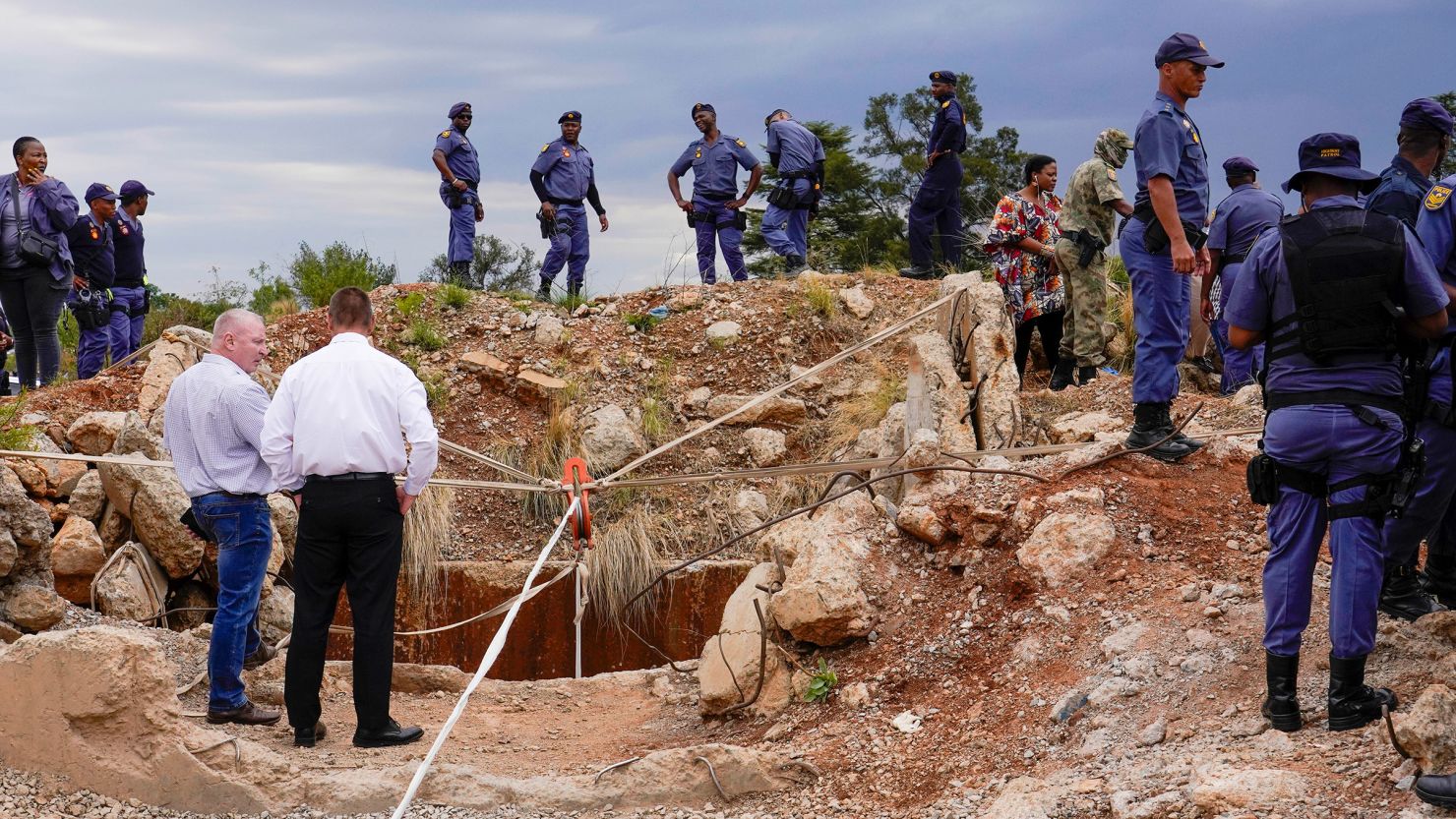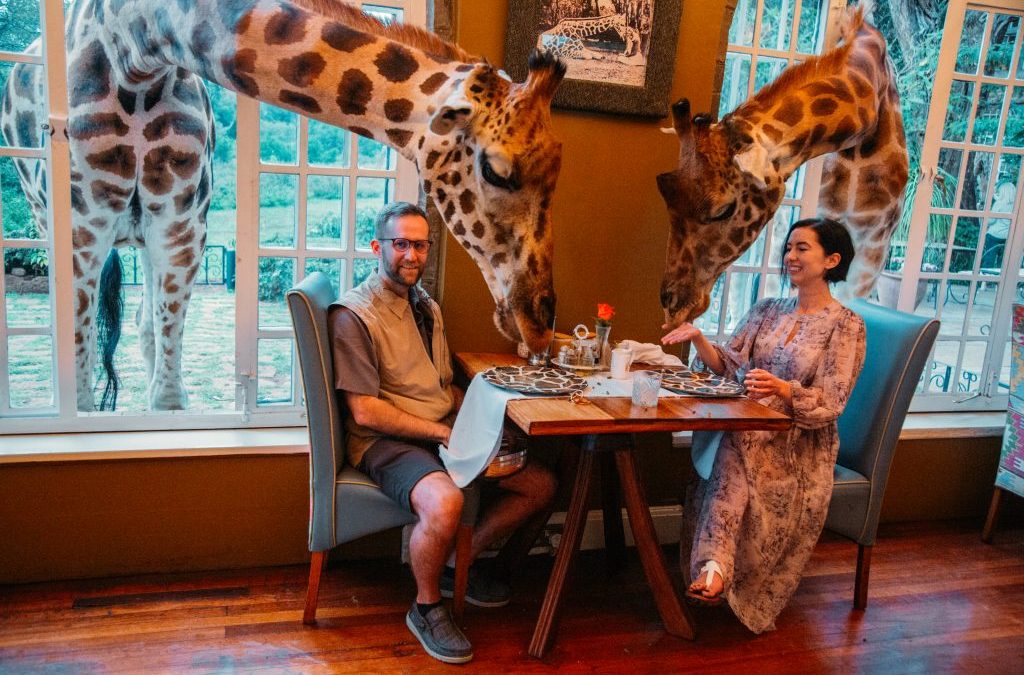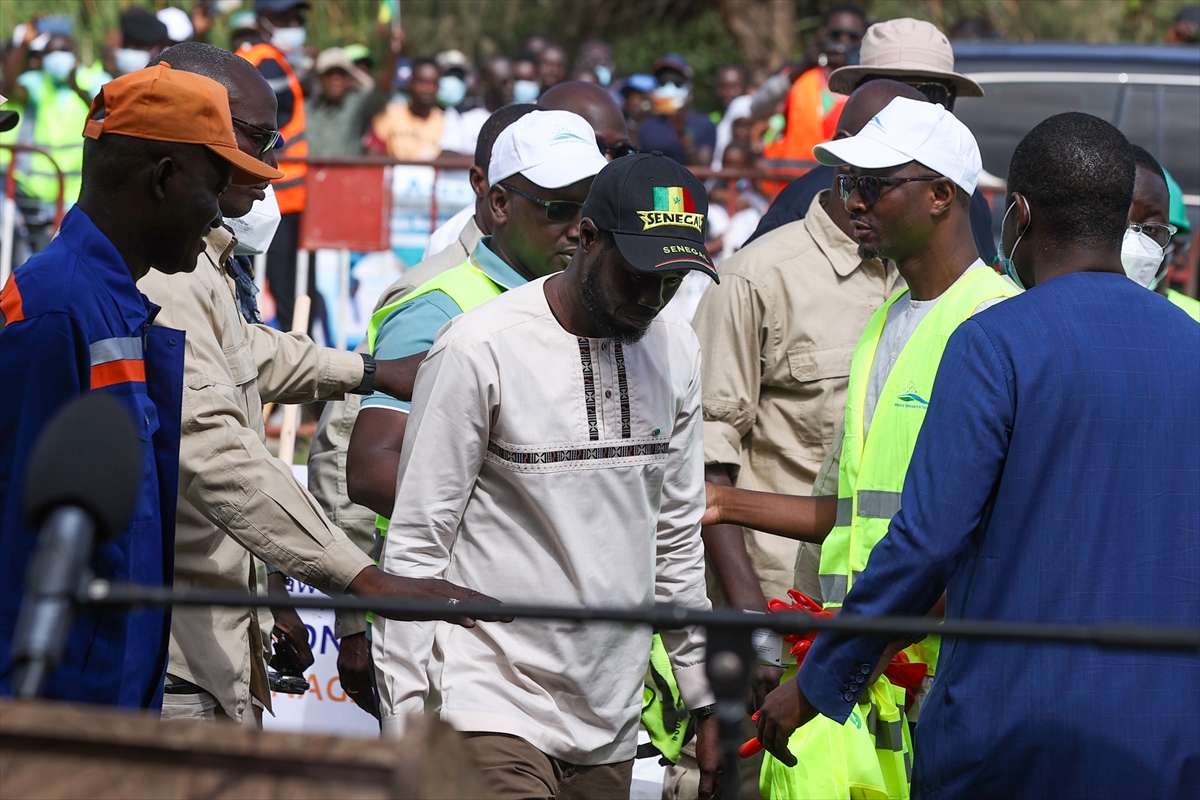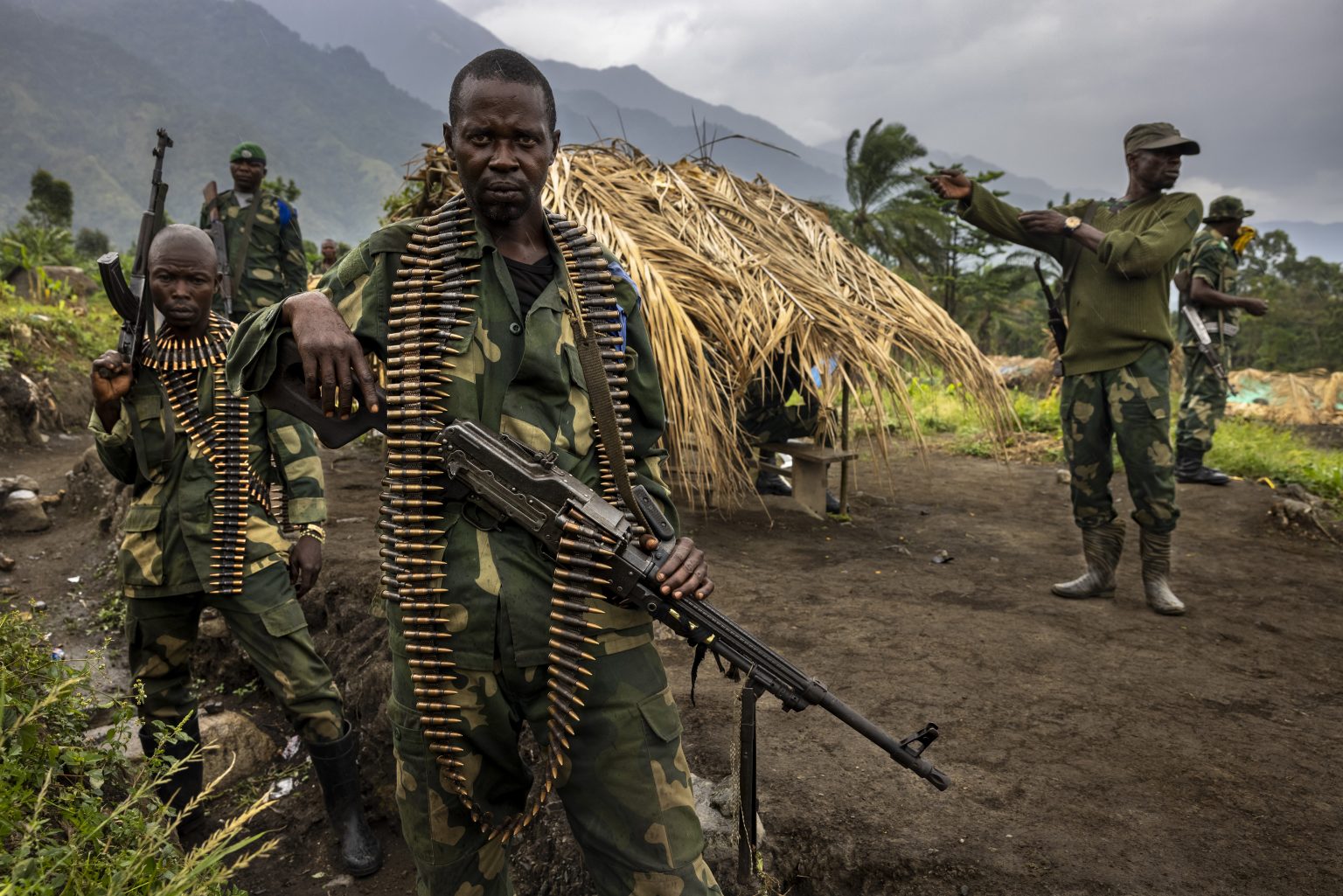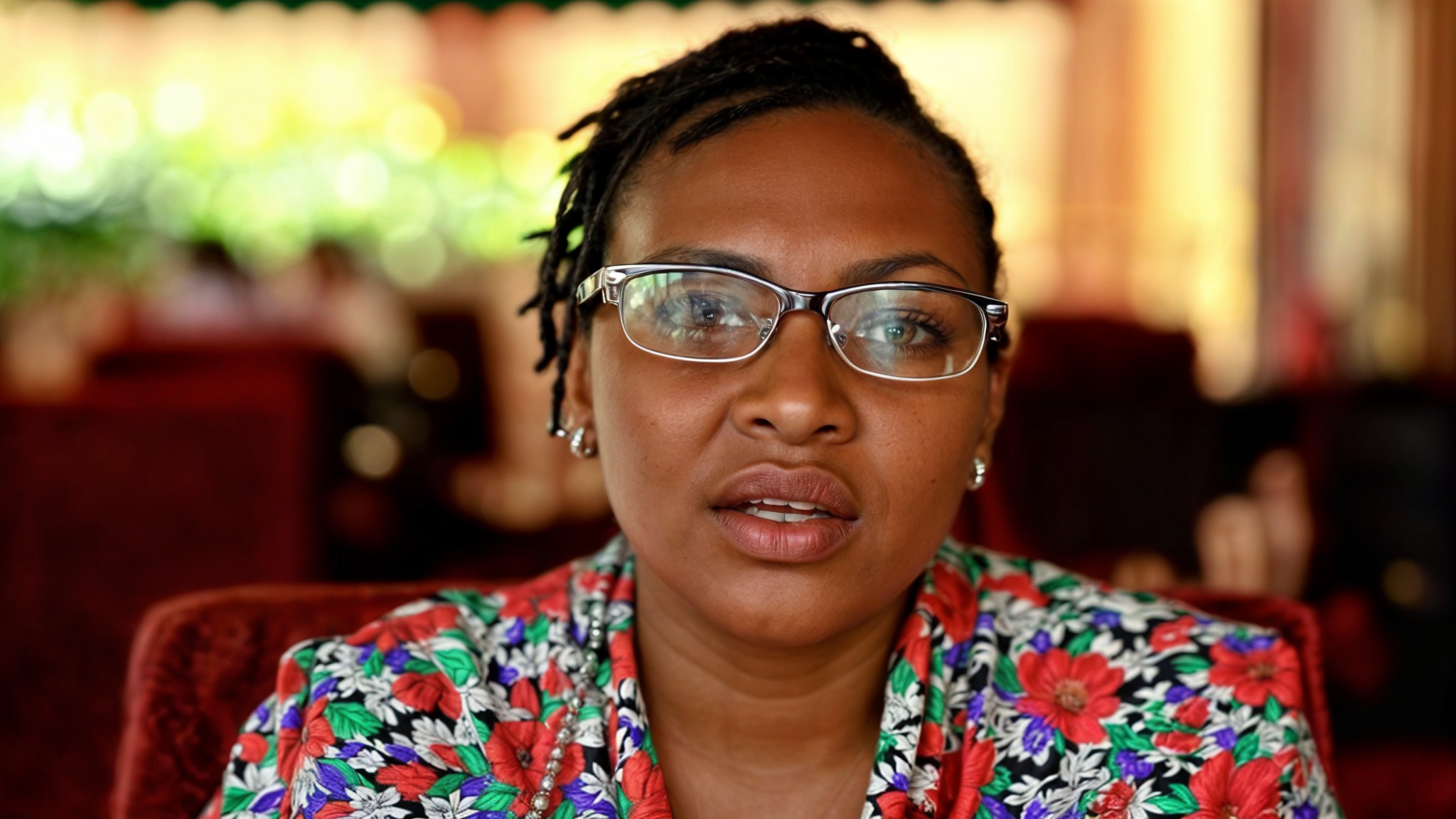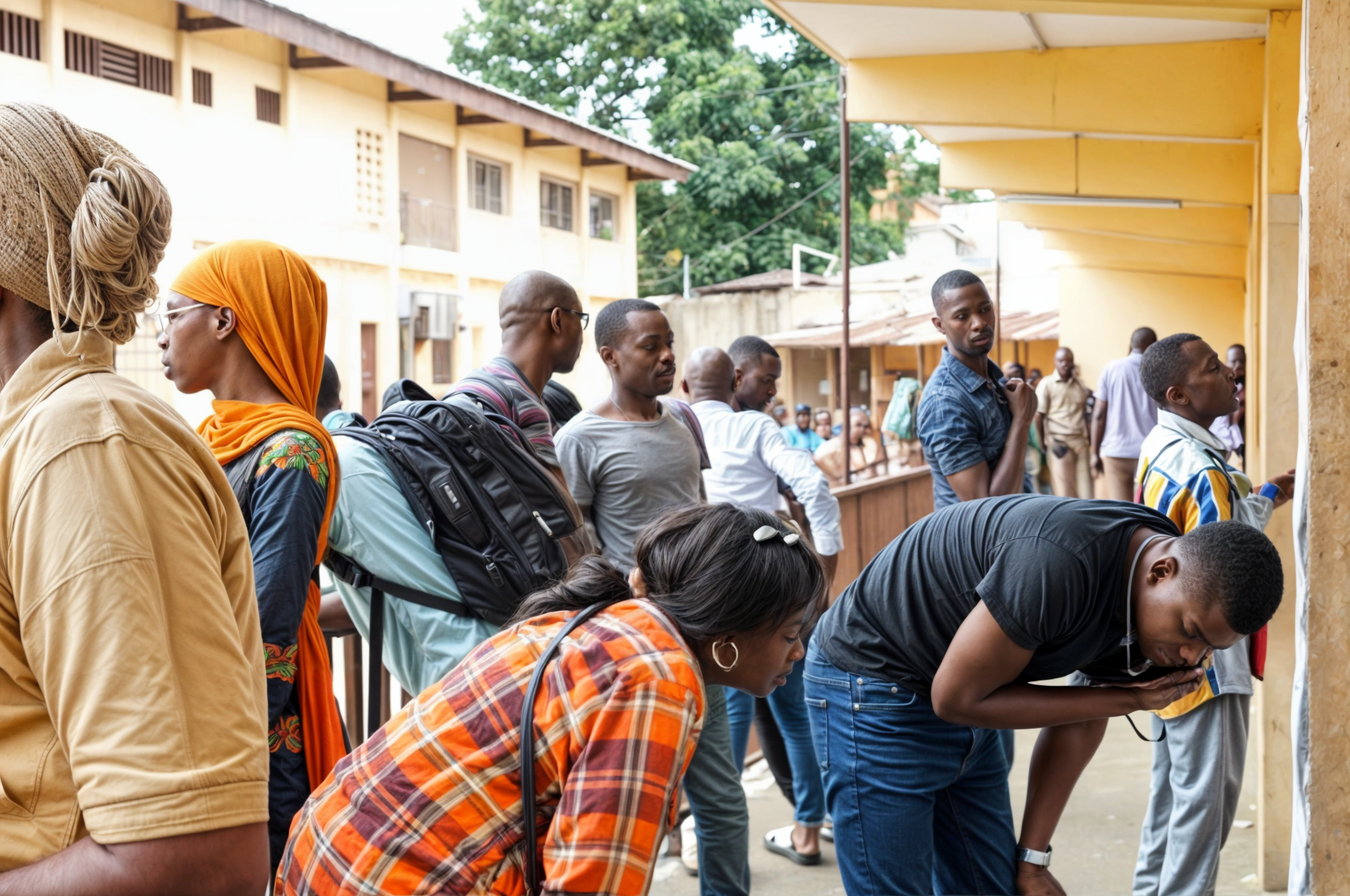Russia vetoes UN resolution, urges aid delivery in Sudan
Russia maintains that genuine peace efforts must prioritize Sudanese sovereignty and avoid external impositions
Uganda’s NGO count drops under stricter rules
Uganda has witnessed a dramatic decrease in the number of registered NGOs due to stricter government regulations and increased scrutiny, particularly affecting foreign-funded organizations.
Nigeria launches delayed mpox vaccination campaign
The country received 10,000 doses of the mpox vaccine from the United States in August
Ethiopia denies reports of military helicopter crash
Defense Ministry calls reports of copter crash in northern city of Bahir Dar ‘propaganda’
Tuti’s ordeal: Sudanese flee war-torn island
The ongoing conflict in Sudan has left countless civilians vulnerable, with Tuti Island serving as a stark example of the human cost of war.
Senegal’s Pastef claims ‘major victory’ in elections
A win for Pastef would provide Faye with a strong mandate to implement the radical policies he campaigned on during his March election, focusing on economic transformation and social justice
Tanzania struggles to rescue survivors after collapse
Rescue teams are working tirelessly to save the survivors, while concerns about unregulated construction in the city grow.
Tanzania building collapse claims 13 lives, dozens rescued
President Samia Suluhu Hassan confirmed that over 80 individuals were rescued and taken to hospitals, with 26 still receiving treatment
Plastic waste blocks Congolese dam, causing power outages
The crisis stems from increased plastic usage and inadequate waste management in the region
RSF rejects UAE help claims, blames others for Sudan’s tragedy
Sudan’s Rapid Support Forces (RSF) have denied responsibility for widespread human rights abuses and rejected claims of receiving support from the United Arab Emirates.
Climate change and overfishing threaten African penguins
Conservation efforts are underway, but more urgent action is needed to save this iconic species.
The Horned Melon: Africa’s alien fruit with a sci-fi twist
If you’ve ever wondered what an alien fruit might look like, the horned melon might be it
PASTEF leading in Senegal’s general election race
In yesterday’s general election in Senegal, unofficial results indicate that President Bassirou Diomaye Faye and Prime Minister Ousmane Sonko’s party, PASTEF, is leading the race. While vote counting continues, early figures show PASTEF has gained significant support across nearly all cities. Government spokesperson Amadou Moustapha Ndieck Sarre told local media that, based on initial results, “PASTEF has achieved a decisive victory.” Opposition coalition leader Barthelemy Dias, Mayor of Dakar, congratulated PASTEF on their success in a Facebook post. He leads the “Samm Sa Kaddu” coalition, which translates to “I keep my word” in Wolof. Amadou Ba, former presidential candidate and leader of the “Jamm ak Njarin” coalition (meaning “Peace and Prosperity” in Wolof), also praised PASTEF on X (formerly Twitter), declaring that Senegal was the real winner. Meanwhile, the “Takku Wallu” coalition, led by former President Macky Sall, alleged widespread electoral irregularities and accused Interior Minister Jean Baptiste Tine of misconduct. 83 Seats Needed for Majority Senegal, with about 7.3 million eligible voters, is electing 165 members of parliament from 41 party and coalition lists. A party or coalition needs at least 83 seats to secure a majority. While official results are still pending, it is expected that PASTEF will easily reach the majority needed to control the National Assembly. The last general election in Senegal took place in July 2022, under the leadership of former President Sall. The National Assembly has faced tensions, particularly over Prime Minister Sonko’s vocal opposition to Sall. In September, President Faye dissolved the parliament and called for early elections, which are now scheduled for April 2024.
Gabon approves new constitution in referendum
Gabon’s military rulers announced that the new constitution has been overwhelmingly approved in a referendum, with provisional results showing 91.8% of voters in favor, and a turnout of 53.5%. The vote, held under the leadership of interim President Brice Oligui Nguema, is seen as a key step in Gabon’s transition to democratic rule, which is scheduled for 2025. The military junta came to power in a coup last August, overthrowing President Ali Bongo, whose family had ruled the oil-rich country for nearly six decades, leaving behind an economy plagued by stagnation and widespread poverty. The proposed constitution includes a two-term presidential limit (seven years each), abolishes the prime minister role, prevents dynastic succession, and establishes that presidential candidates must be born in Gabon to at least one Gabonese parent and have a Gabonese spouse. While the draft is seen as a major shift toward reform, it does not bar Nguema from running for president, which has raised concerns among some observers. The final results will be confirmed by the Constitutional Court.
Biden authorizes Ukraine’s deep strikes on Russia
The United States has authorized Ukraine to use US long-range missiles, enabling deep strikes on Russian targets amid escalating tensions and strategic changes in the Ukraine-Russia war.
UK pledges more aid to Sudan’s war victims
The UK has doubled its aid package to Sudan, allocating £113 million to support over a million people affected by the ongoing war.
South African court orders police to lift blockade at Stilfontein Mine
Many miners fear arrest or deportation, as some are undocumented migrants
Wake up to giraffes and sunsets in Kenya’s treehouse hotels
The concept has drawn global attention, setting a new bar for experiential travel
Senegal holds early general election
Polls have opened in Senegal’s parliamentary elections as President Bassirou Diomaye Faye aims for a resounding majority to see through the promises of ambitious reforms that swept him to power eight months ago. More than seven million of the country’s 17 million people are eligible to vote on Sunday to pick members of the 165-seat National Assembly for a five-year term. Polls opened at 8am (08:00 GMT) and will close at 6pm (18:00 GMT). Faye won the March election on a platform of economic transformation, social justice, and anti-corruption, inspiring hopes among the country’s largely youthful population struggling with high inflation and unemployment. In September, he dissolved the National Assembly. After Sonko, his outspoken mentor, was barred from running for president due to defamation charges, Faye appointed him as prime minister. The two leaders vowed to pursue a left-wing pan-African agenda, aiming to diversify Senegal’s political and economic partnerships, reassess hydrocarbon and fishing contracts, and reclaim the country’s sovereignty, which they claimed had been compromised by foreign interests.
Gabon votes on new constitution in key referendum
Voters in Gabon’s capital, Libreville, gathered outside polling stations on Saturday, November 16, to cast their votes in a historic referendum on the country’s proposed new constitution. Nearly one million people in the oil-rich nation were expected to take part in the vote. The final draft of the new constitution was made public less than a month ago, marking a significant milestone in the country’s transition following the overthrow of former President Ali Bongo by General Oligui Nguema last year. Nguema, who is now leading the country’s transitional government, expressed satisfaction with the process, highlighting the presence of international observers and emphasizing the transparency and inclusiveness of the referendum. “It shows to friendly nations how we were able to organize this referendum process in our country,” Nguema said, adding that it was a positive and crucial step forward in ensuring the transition’s success. One of the key changes in the draft constitution is the imposition of a seven-year presidential term limit, renewable only once, replacing the current system, which allowed for unlimited five-year terms. The new constitution also includes provisions preventing family members from succeeding the president and abolishes the position of prime minister. To pass, the draft constitution requires more than 50% of the vote. Should the “Yes” vote prevail, presidential elections are scheduled for August 2025. “I would like the Yes vote to win so that the long-awaited change in our nation can finally take place,” said Koundji, a voter at the polling station. However, some voters have raised concerns about certain provisions, particularly the power granted to the head of state to dissolve the National Assembly and issues around eligibility rules. The controversy surrounding these points has added a layer of complexity to the referendum. Brice Oligui Nguema, the head of the transition government, is expected to be eligible to run for president under the new constitution, which is also generating some debate among the electorate.
Thousands march in Niamey, reject foreign interference
Thousands of Nigeriens took to the streets of Niamey on Saturday (Nov. 16) to show support for the ruling CNSP junta and protest foreign attempts to destabilize the country. The demonstration was organized by a coalition of civil society groups after authorities claimed to have arrested a French ‘spy’. Many protesters also expressed solidarity with Burkina Faso and Mali, Niger’s allies in the Alliance of Sahel States (AES). Some speakers, like Mohamed, condemned foreign interference, citing recent destabilization attempts in Mali and Burkina Faso. “We are with our military and security forces,” he declared. The protest, which was attended by CNSP officials, including President’s Chief of Staff Colonel Ibro Amadou Bacharou, as well as student and youth unions, was fueled by accusations that France sought to overthrow the regime that deposed former President Mohamed Bazoum. Protesters also rejected France’s withdrawal of troops and expressed determination to defend their sovereignty. Civil society leader Abdourahamane emphasized the rising awareness among Africans, asserting that the continent can no longer be manipulated by external powers. “Today, Africans master the tool of information,” he said. While the protesters celebrated their defiance, they also called for economic and military development. “In the next ten years, the CNSP must build the weapons and tanks to defend us,” organizer Mohamed Elkebir Souleymane said, as the crowd enthusiastically agreed. The demonstration comes just ahead of an international conference in Niamey to support the AES states.
Tunisia cracks down on migrant activism, arrests key figure
A leading Tunisian advocate for migrants, Abdallah Said, has been detained and is facing a terrorism probe.
ADF rebels kill 13, kidnap more in eastern DR Congo
Extremist rebels linked to the Islamic State group killed at least 13 people and kidnapped others in eastern Congo.
Kenya’s climate champion calls for urgent global action
As the COP29 climate summit continues, a Kenyan climate scientist pleads for global solidarity to address the climate crisis.
Gabon votes on new constitution, aims for historic shift
Gabon held a referendum on a new constitution hailed by the junta as a turning point to end dynastic rule and promise democratic reforms.
Climate crisis disrupts African education
Heatwaves and floods have made it increasingly difficult for children in East Africa to attend school, highlighting the urgent need for climate adaptation measures.
South Africa forms task force to rescue trapped illegal miners
In a bid to safely retrieve illegal miners stuck in a disused gold mine southwest of Johannesburg, South African authorities have assembled an inter-agency task force that includes mine rescue specialists


